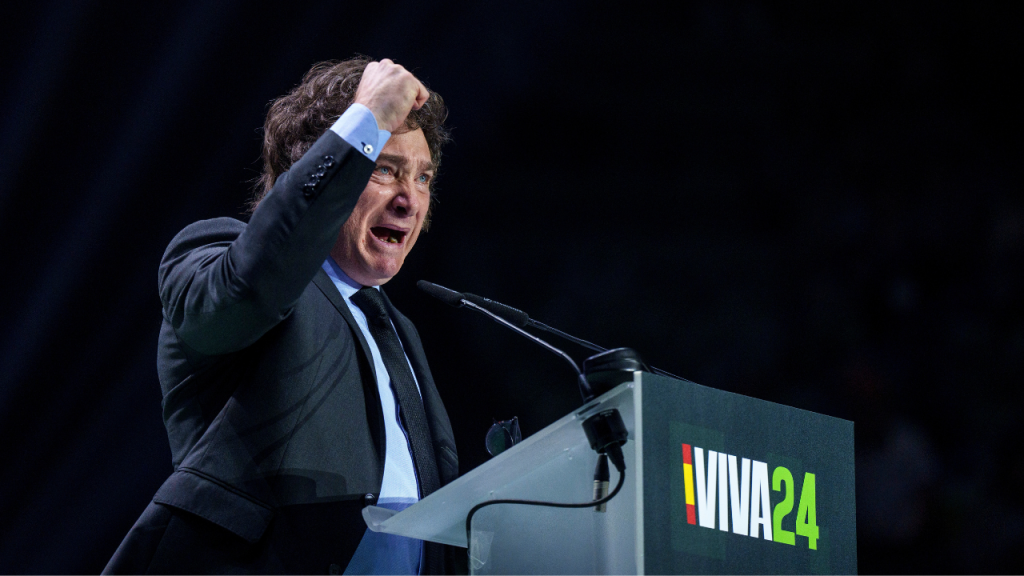Milei’s Midterm Victory: A Game-Changer for Argentina’s Economic Future
Argentine President Javier Milei achieved what many consider a watershed moment in his country’s political landscape with a decisive victory in Sunday’s midterm elections. His libertarian party, La Libertad Avanza, secured approximately 41.5% of the vote in Buenos Aires province—traditionally a Peronist stronghold—narrowly defeating the opposition’s 40.8%. This result has transformed Milei’s position in government, increasing his party’s presence in the lower house from 37 to 64 seats. Political analysts describe this outcome as exceeding even the most optimistic projections from Milei’s supporters, providing him with the congressional strength needed to defend his economic vision against opposition challenges. The victory represents not just a political win but a public endorsement of Milei’s controversial free-market reforms and austerity measures that have defined his administration thus far.
The election results reflect a remarkable shift in public sentiment, with many Argentinians apparently willing to endure short-term economic pain in exchange for the promise of long-term stability. As political consultant Gustavo Cordoba observed, “Many people were willing to give the government another chance. The triumph is unobjectionable, unquestionable.” This patience from voters comes despite Milei’s implementation of deeply unpopular spending cuts and deregulation measures that have touched nearly every sector of Argentine society. What makes this public forbearance particularly noteworthy is that it breaks with Argentina’s historical pattern of quickly rejecting economic austerity. Citizens seem to recognize early signs of improvement—inflation has dramatically decreased from 12.8% before Milei took office to just 2.1% last month, while the government has achieved something previously thought impossible: a fiscal surplus after years of deficits.
The international community has taken notice of Argentina’s economic transformation under Milei’s libertarian approach. Former U.S. President Donald Trump publicly congratulated Milei on social media, writing: “Congratulations to President Javier Milei on his Landslide Victory in Argentina. He is doing a wonderful job! Our confidence in him was justified by the People of Argentina.” This public endorsement highlights the growing relationship between the two leaders who share certain ideological similarities. More concretely, reports indicate the United States has offered Argentina a substantial $40 billion aid package, including a $20 billion currency swap and a proposed $20 billion debt-investment facility. This external support appears tied to Milei’s electoral performance, suggesting international stakeholders are betting on the continuation of his economic policies.
Financial markets have responded enthusiastically to Milei’s strengthened political position. Argentine bonds and stocks are expected to rally as investors gain confidence that Milei now possesses the political capital necessary to accelerate his reform agenda. This positive market reaction stands in stark contrast to Argentina’s recent financial history, which has been marked by currency crises, debt defaults, and chronic instability. Investors appear convinced that Milei’s combination of spending discipline, deregulation, and market-friendly policies represents a genuine departure from the populist economic approaches that have dominated Argentine politics for decades. The renewed investor confidence could create a virtuous cycle—bringing in foreign capital, stabilizing the peso, and funding the investments needed for sustainable economic growth after years of stagnation.
The road ahead for Milei’s administration remains challenging despite the electoral victory. His economic program still faces significant obstacles, including entrenched interests that benefit from the status quo, unions resistant to labor market reforms, and social movements opposed to reductions in government subsidies and welfare programs. Additionally, many Argentinians continue to struggle with the immediate consequences of economic adjustment—including higher utility costs, reduced public services, and employment uncertainty in certain sectors. Milei must now balance maintaining reform momentum with addressing these legitimate concerns. His enhanced position in Congress gives him more tools to implement his agenda, but also increases expectations for delivering tangible improvements in living standards beyond macroeconomic indicators.
For Argentina, this election represents more than just a typical midterm result—Milei himself called it “a turning point.” After decades of economic experimentation, from Peronist populism to various forms of managed capitalism, the country appears to be embracing a more radical free-market approach under Milei’s libertarian vision. The president’s strengthened mandate suggests Argentinians are ready for fundamental change rather than incremental adjustments to a system that has repeatedly failed to deliver prosperity. If Milei succeeds in maintaining both public support and fiscal discipline, Argentina could potentially break free from its cycle of economic crises and position itself as a case study in successful economic transformation. As the country moves forward under Milei’s expanded authority, both supporters and skeptics will be watching closely to see if this libertarian experiment can finally deliver the stable, prosperous future that has eluded Argentina for generations.














